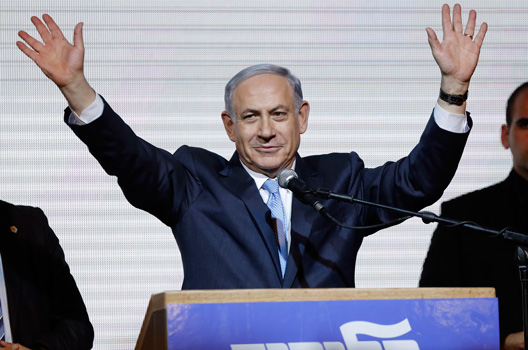Israeli Prime Minister Benjamin Netanyahu’s failure to forge a coalition government after his apparent electoral victory in April is a serious setback for him, and brings to a head the dynamic religious, political, and personal tensions that have infused Israeli politics for some time.
On May 29, Israeli lawmakers voted to dissolve parliament after Netanyahu failed to form a coalition government by a midnight deadline. Fresh elections will be held on September 17. This is the first time in Israel’s history that a prime minister-designate has failed to form a coalition government.
Netanyahu now finds himself the victim of a political landscape which he himself had a large part in shaping over the past ten years, unable to build his Likud into a majority party, and beholden to far-right and ultra-orthodox religious parties on the one hand and to the secular followers of Avigdor Liberman on the other.
Netanyahu’s inability to find a way to bring Liberman, with whom he has had a long and sometimes contentious relationship, on board confirms that for now at least Liberman is indeed the king-maker.
It may be that Netanyahu cannot accept such leverage within his coalition, but It is not clear that new elections three months from now will produce a different equation that will enable Netanyahu to escape his dilemma. But in Israel, one can always try, as long as one lives to fight another day — which Netanyahu appears to have done.
Normally, Netanyahu’s failed attempt to form a coalition would have led Israeli President Reuven Rivlin to charge opposition leader Benny Gantz with trying to form a government. But in fact Gantz and the Blue and White party had been unable to demonstrate the possibility of forming an alternative coalition, despite Netanyahu’s difficulties. Breaking the existing mold of Israeli politics was the basis on which they challenged Netanyahu in the first place. The call for new elections in September thus gives Blue and White a second chance to reach out to voters as the alternative to an imperiled Netanyahu. They, too, live to fight another day.
The upcoming three months of political uncertainty and infighting, and of ambiguity about Netanyahu’s legal fortunes given the impending indictments facing him, make Israeli decision-making on difficult issues highly unlikely.
If one thought there were any prospects for a Trump “peace plan” and new Israeli engagement in the region, those already dim prospects have receded further. To this point, the time has never been ripe for launching the Middle East peace deal US President Donald J. Trump’s son-in-law, Jared Kushner, has been working on and it seems that with Israel in a continuing election campaign, the possibilities for diplomacy are dim and the possibilities for mischief making almost endless. It may be that one result will be to spare both Netanyahu and Trump from having to advance a peace deal that seems likely to go nowhere.
James B. Cunningham is a nonresident senior fellow with the Atlantic Council’s South Asia Center. He served as the US ambassador to Israel from 2008 to 2011.
Image: Israeli Prime Minister Benjamin Netanyahu declared victory in Israel's elections at Likud party headquarters in Tel Aviv March 18. "What he did is comparable to a landslide,” Gil Tamary, Washington Bureau Chief for Israel’s Channel 10 News, told the New Atlanticist. (REUTERS/Amir Cohen)

